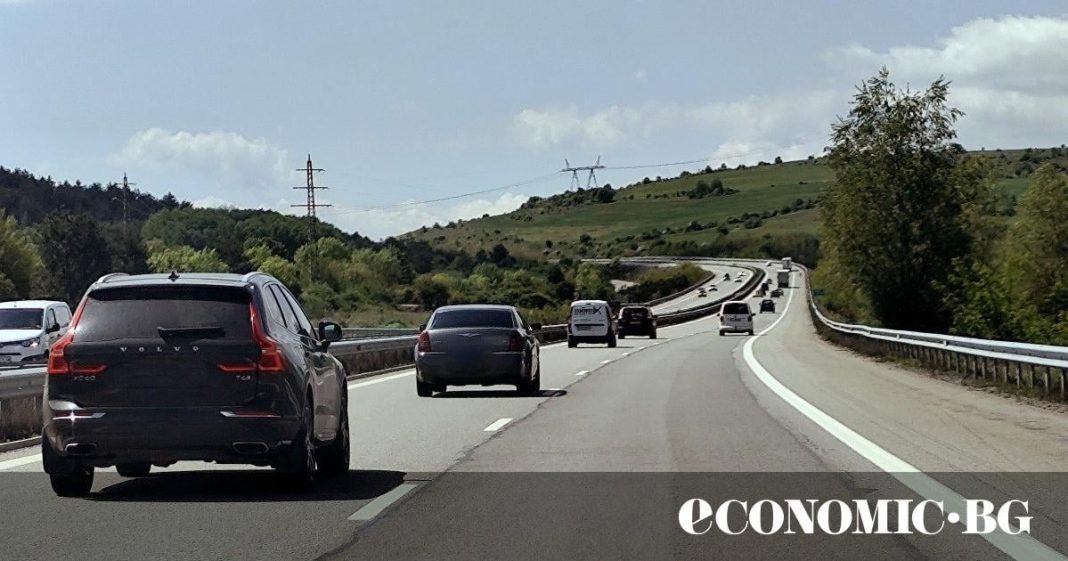Bulgaria will now have a one-day vignette for light vehicles, and tolls will be calculated according to a new principle, which will also take into account the degree of pollution caused by the vehicle. The amendments to the Road Traffic Act were finally adopted by the National Assembly on second reading on Wednesday evening. Bulgaria is thus taking its first steps towards a fairer and more environmentally friendly road charging system.
In addition, amendments to the Road Traffic Act have included municipal cameras in the speed monitoring system, according to BTA. Unpaid fines and tickets will be issued by municipal administrations.
Some of the changes were adopted at first reading back in April. We would like to remind you that the road laws were voted on twice. Last week, MPs finally allowed the toll system to monitor average speeds on the roads. However, there was not enough time to vote on the changes in their entirety.
New vignette and toll
A one-day vignette will be introduced for light vehicles weighing up to 3.5 tons that use the national road network. The measure will come into force six months after the law is published in the State Gazette.
A major reform is also pending in the toll system for heavy goods vehicles over 3.5 tons. The new methodology, to be developed by the National Toll Administration, provides for tolls to be determined according to the environmental category (EURO) and carbon dioxide emission class. This means that more polluting vehicles will pay higher fees – a change that complies with European legislation.
The Council of Ministers will be able to temporarily exempt foreign vehicles from road tolls if they are participating in international missions or operations to protect human life and health, such as fire engines from neighboring countries.
The measure is reciprocal – Bulgarian firefighting teams will also be exempt from tolls in other countries under similar circumstances.
Access to data in the electronic toll collection system is being expanded – in addition to the National Revenue Agency, the Customs Agency will now also have such access.
The deadline for new providers of European Electronic Toll Service (EETS) has been extended – they will be able to conclude contracts up to 36 months after their registration (instead of the current 24 months).
Control by municipalities
Changes to the Road Traffic Act tighten penalties for speeding. In addition, new control mechanisms are being introduced through municipal cameras and unmarked police cars.
Municipal automated cameras will be able to detect speeding. We would like to remind you that these changes were insisted upon by GERB, which submitted the texts to the last three parliaments. Half of the fines collected by municipal cameras will go to the Road Safety Fund at the Ministry of Interior, and the other half will go to municipal budgets, where they can only be used for road safety activities.
Electronic tickets and fines issued by the Ministry of Interior will now also be able to be handed out by municipal employees appointed by the mayor.
Uniformed police officers will be able to carry out checks in unmarked official vehicles when the violation poses an immediate danger. Such vehicles will stop using blue lights, a siren, the word „Police“ and voice instructions in Bulgarian and English. Unmarked official vehicles may also use automated technical devices and systems for control purposes.
Fines for speeding
The current fine of BGN 600 for serious speeding will no longer be the only penalty. If a driver exceeds the speed limit by more than 40 km/h in a built-up area, they will have their license suspended for two months and will have to pay a fine. If the speed limit is exceeded by more than 50 km/h outside a built-up area, this will again result in a two-month driving ban.
Repeat offenders will have their license revoked for three months and the fine will be doubled. Repeat offenders will be punished with a triple fine and a six-month driving ban.
More changes to the law
Technical inspections will not be possible unless all fines issued electronically have been paid.
Fines for running a red light will increase from BGN 100 to BGN 150, for failing to stop at a pedestrian crossing the fine will be BGN 150, and the fine for failing to stop at a STOP sign will be BGN 100.
If the owner does not declare who was driving the vehicle at the time of the violation, they are solely responsible. In the case of legal entities, the legal representative is responsible. In the case of minors or young drivers, the parents or guardians are responsible.
Foreign legal entities will be subject to a property sanction equal to the fine for the respective violation.
The minimum fine for violations for which no other penalty is provided shall be increased from BGN 20 to BGN 50. The fine for not having personal documents or a civil liability insurance policy shall be BGN 30 (previously BGN 10). Driving schools operating without a license or in violation of regulatory requirements will be fined BGN 3,000.
MPs agreed to ease the conditions for obtaining a category D license (for passenger transport). Until now, it was required that the driver already have a category C license and at least two years of experience. With the changes, anyone aged at least 24 with a category B license for at least two years will be able to become a bus driver.
Category B will be available at the age of 17, but drivers will have to drive with an accompanying person until they reach the age of majority.
Translated with DeepL.
Източник: Economic.bg


